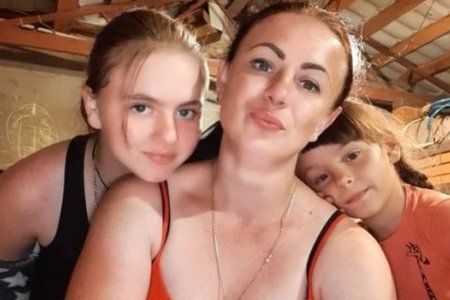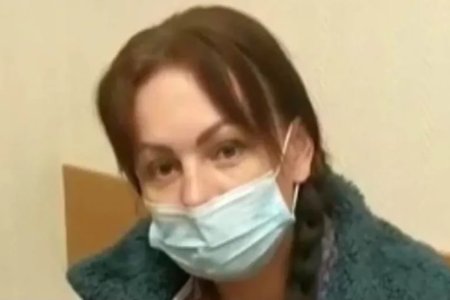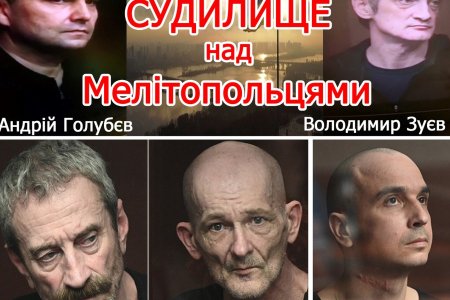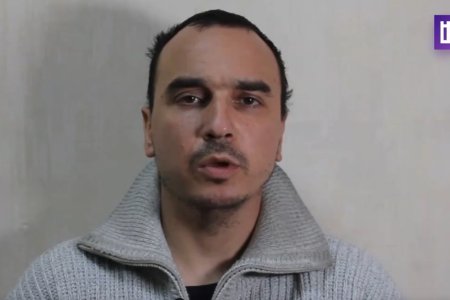
Ukrainians on occupied territory are learning to delete even Google search records as Russia intensifies methods of terror and surveillance, with people fined, imprisoned, or worse, for any demonstration of pro-Ukrainian sentiments on a person’s phone or social media page. The methods cannot be called new, as Russia has been using them to stifle free speech, as well as to abduct, imprison or heavily punish independent voices in occupied Crimea and Donbas since 2014. Censorship, propaganda and terror methods have, however, become more aggressive everywhere since Russia’s full-scale invasion of Ukraine in 2022, with the invaders clearly trying to create a total information vacuum on occupied territory. They are also threatening or imposing criminal or administrative prosecution and hefty penalties for social media ‘likes’ or reposts, or for making donations to what the Russians label ‘extremist’ organizations.
Russia is creating its so-called ‘anti-terrorist commissions’ on all occupied territory, with their aim having nothing to do with fighting ‘terrorism’ in any internationally accepted understanding of that term. The Russian-occupation ‘Donetsk people’s republic’ described the functions of its ‘commission’ as being “prophylactic work against terrorist and extremist manifestations”, with it safe to assume that support for Ukraine and opposition to Russian occupation would be deemed ‘extremist’.
In fact, judging by the ‘prophylactic’ warnings circulated by the analogous ‘commission’ in occupied Zaporizhzhia oblast, support for Ukraine’s defenders could result in criminal prosecution for supposed ‘financing of terrorism’. On 6 May, RIA Melitopol, published the warning that the ‘commission’ was posting on social media platforms popular on occupied territory. The threat was purportedly to those who “have decided just as a joke to support criminals with their last hundred” and tells them that “if you transferred just one rouble to the accounts of extremists or other banned organizations, be ready to face liability. Criminal liability for financing terrorism was introduced into the Russian criminal code” in 2002.
RIA Melitopol is, doubtless, correct in concluding that this is an attempt to frighten Melitopol residents, warn them that the history of their bank transfers and their card in the only available (Russian) bank are under surveillance. The aggressor state is using terms like “support for criminals” and “the financing of terrorism” to refer to donations to Ukraine’s Armed Forces or the resistance movement.
The same ‘anti-terrorist commissions’ are also carrying out ‘prophylactic’ intimidation measures among students in occupied Melitopol to try to scare them off having any contact with free Ukraine. RIA Melitopol reported on 20 May that the students had all been forced to attend an “interactive” lecture on not “falling prey to recruiters”. According to Russian-installed ‘deputy governor’, Anton Titsky, such recruitment could be from “all kinds of destructive organizations – radical Islamist and nationalist Ukrainian [organizations].” Russia, as occupying state, is endeavouring to inculcate in occupied territory the same Soviet-style culture of denunciations which has been reinstated in Russia since Vladimir Putin came to power. Students are told that if they are approached by strangers and asked questions “of a provocative nature” or are invited to carry out unlawful actions, they must immediately inform the occupation ‘police’ or FSB. It is clear from the examples provided that the students are well aware what they are being asked to report to the FSB, and this is most certainly not information about a likely serial killer or drug dealer. The occupation regime is intent on convincing young people that they face criminal liability and sentences of up to eight years for cooperation with “nationalist Ukrainian organizations”. They can expect the same type of sentence for donating money to organizations that Russia claims are ‘extremist’, with the amount donated immaterial.

The same ‘anti-terrorist commission’ is also threatening them with imprisonment for ‘likes’ on social media, or for the Ukrainian flag. The mildest ‘sentence’, still under the Russian ‘code of administrative offences’, would be 15 days imprisonment for using “extremist symbols”. A mere glance at prosecution statistics in occupied Crimea demonstrates that Ukraine’s flag and the Trident will be included under this label (or said to ‘discredit the Russian armed forces’). The same term of imprisonment could be imposed for reposting such symbols, comments under them, or even ‘likes’. Such ‘leniency’ moreover is fleeting. If the supposed ‘offence’ is repeated, criminal liability will ensue.
The messages posted by the ‘anti-terrorist commissions’ are a clear warning that ‘Big Brother’ is watching residents and that they face imprisonment for what Russia calls ‘extremism’ in the form of ‘likes’; reposts; donations and mentions. A series of different cards have been produced, all under the title: IMPRISONED FOR EXTREMISM: LIKES, REPOSTS, DONATIONS AND MENTIONS.
The first begins with the words: “The organization is declared extremist on RF territory. What you are PROHIBITED from doing:
- Reposting material of extremists in social media (including by circulating in chats and groups) – 15 days’ imprisonment
- Commenting on extremists’ material on the Internet – can lead to charges of making calls to extremism and result in criminal liability
Another such page warns that for the same ‘likes, reposts, donations and mentions’, the charge would be much more serious – of ‘participation in an extremist organization’, with this carrying a potential sentence of up to 6 years’ imprisonment (under Article 282.2 § 2 of Russia’s criminal code).
None of this is at all theoretical. In March 2024, the Russian occupation ‘Zaporizhzhia oblast Investigative Committee’ reported the arrest of a resident of Melitopol. The Ukrainian was accused, “on the basis of FSB material of inciting enmity and denigrating human dignity (under Article 282.2 § 2a). RIA Melitopol is almost certainly correct in assuming this to have been a post against Russia’s invasion and war of aggression against Ukraine.
Through such ostentatious prosecutions over old social media posts, the Russian aggressor is not just seeking to silence an individual voice of protest, but to send a clear message to others that they are under surveillance and that any expressions of support for Ukraine and opposition to its invasion, however old, could get them imprisoned or fined.



